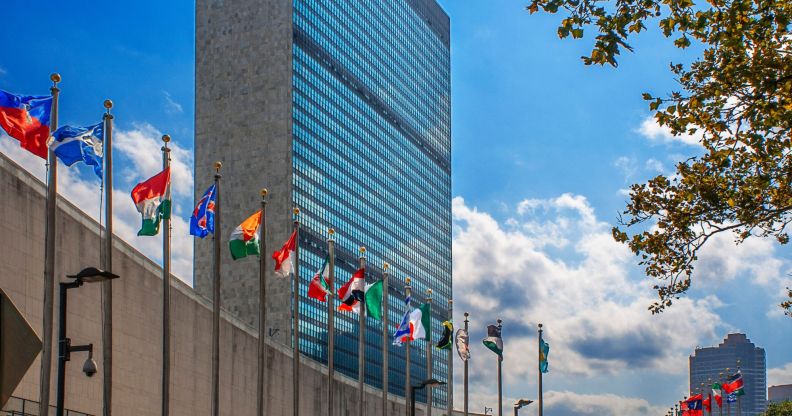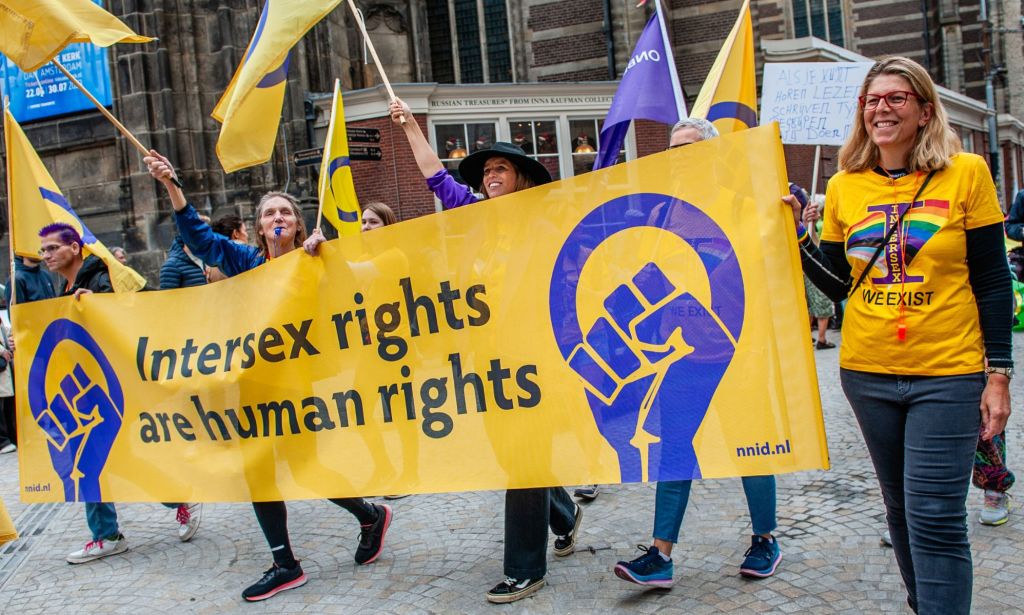
30 nation states approved of the resolution on Thursday. (Getty)
The United Nations (UN) Human Rights Council has adopted a landmark resolution to combat the discrimination intersex people face.
The first-of-its-kind resolution, which recognises that “persons with innate variations in sex characteristics” have faced discrimination in “all areas of life”, was agreed on Thursday (4 April) with no member state opposing it.
The resolution, initially put forward by the governments of Australia, Chile, Finland and South Africa in February, vows to combat the “violence and harmful practices” that intersex people around the world face.
Twenty-four countries, including Belgium, France, Germany, Japan, India, Lithuania, The Netherlands and the US, voted in favour of adopting the resolution. Twenty-three, including Bangladesh, China, Georgia, Indonesia, Kazakhstan, Kuwait, The Maldives, Sudan and the United Arab Emirates, abstained.

The resolution cites experts who say, on average, at least 1.7 per cent of babies worldwide are born intersex, meaning they have sex characteristics which do not fit the binary sexes of male or female.
As part of the resolution, the United Nations High Commissioner for Human Rights will prepare a report outlining the breadth and type of discrimination that intersex people face as well as methods to mitigate it, including “legal protection and remedies.”
The council will also create a panel discussion during its 60th session, expected next year, to help outline the root causes of intersex discrimination “including misconceptions and inaccurate information” as well as examining best practices in supporting intersex people.
ILGA-Europe, a not-for-profit LGBTQ+ advocacy group, called the resolution “groundbreaking”, saying it was an “important reference point for European institutions, and countries should follow and act upon it.”
The resolution is “a testament to the international community’s commitment to addressing and mitigating the challenges faced by intersex individuals”, US ambassador to the UN, Michèle Taylor, told The Hill ahead of the vote.
“It underscores the necessity of a human-rights-respecting approach, avoiding language that pathologises and stigmatised, and instead advocates for the autonomy, dignity and equality that all persons, regardless of their sex characteristics, deserve,” she added.
